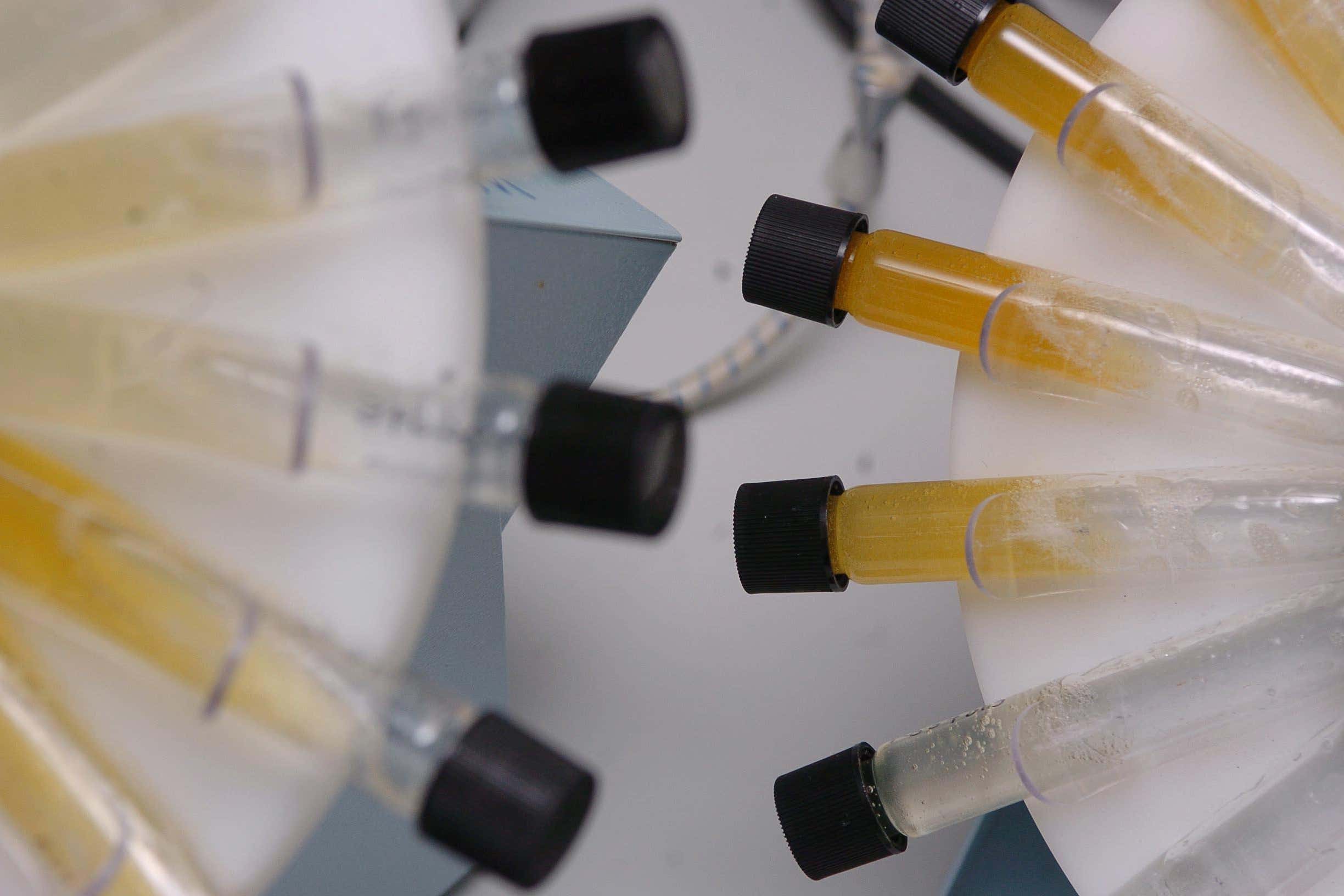Simple urine test ‘could help avoid unnecessary prostate cancer biopsies’
MPS2 is able to distinguish between slow and fast-growing prostate cancers.

A urine test which looks at 18 genes linked to aggressive prostate cancer could help men with the slow-growing form of the disease avoid unnecessary invasive biopsies, according to scientists.
Researchers at the University of Michigan in the US developed the test, called MyProstateScore2.0 (MPS2), with aim to distinguish between slow and fast-growing prostate cancers.
Most localised prostate cancer grows slowly – or does not grow at all – and may not need treatment.
This type of cancer is often monitored with regular check-ups instead.
More than one-third of prostate cancer diagnoses are low-grade form, researchers said.
They said their MPS2 test could help avoid up to 41% of unnecessary biopsies, which are often done under a general anaesthetic in the operating theatre.
At present, tests to check for prostate cancer include a digital rectal examination, a PSA blood test, MRI scans and a sample, or biopsy, of the prostate gland.
But blood tests or MRI alone cannot tell for sure whether someone has prostate cancer.
A biopsy is more reliable but can also find small, low-risk cancers that do not need treatment.
If you're negative on this test, it's almost certain that you don't have aggressive prostate cancer
Professor Arul M Chinnaiyan, director of the Michigan Centre for Translational Pathology at the University of Michigan, said current commercial tests available for prostate cancer can detect the disease but are “not doing as good a job in detecting high-grade or clinically significant prostate cancer”.
He said the MPS2 test will “address this unmet need”.
Prostate cancer is the most common cancer in men in the UK, with around one in eight men diagnosed in their lifetime.
Around 490,000 UK men are living with and after prostate cancer.
For the study, published in the journal Jama Oncology, the researchers looked at data from more than 58,000 genes, narrowing it down to 18 that are thought to be associated with aggressive form of prostate cancer.
Based on these 18 genes, the team developed the MPS2 test was then performed on more than 800 urine samples.
MPS2 was able to rule out low-grade cancer with almost 100% accuracy, the researchers said.
Prof Chinnaiyan said: “If you’re negative on this test, it’s almost certain that you don’t have aggressive prostate cancer.”
Findings also showed MPS2 testing would avoid up to 41% of unnecessary biopsies, compared to 11% of unnecessary biopsies avoided with PSA blood testing alone.
John T Wei, a professor of urology at Michigan Medicine – the University of Michigan’s academic medical centre, said: “Four of 10 men who would have a negative biopsy will have a low risk MPS2 result and can confidently skip a biopsy.
“If a man has had a biopsy before, the test works even better.
“In those men who have had a biopsy before and are being considered for another biopsy (after being monitored over time), MPS2 will identify half of those whose repeat biopsy would be negative.
“Those are practical applications for patients out there.
“Nobody wants to say sign me up for another biopsy.
“We are always looking for alternatives and this is it.”
Bookmark popover
Removed from bookmarks